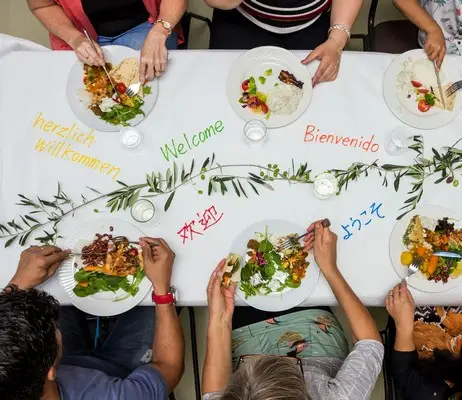Table of Contents
- The Rise of Reconstituted Families in Contemporary Society
- Role Adjustment in Reconstituted Families
- Dynamics Between Step-Siblings
- Step-Parenting and Authority
- The Role of Biological Parents in Blended Families
- Emotional and Psychological Impact on Children
- Conclusion
Reconstituted families, also known as blended families, are a family structure formed when one or both partners bring children from previous relationships into a new union, either through remarriage or cohabitation. This form of family is becoming increasingly common in the UK, reflecting broader societal changes such as higher divorce rates and a more liberal approach to family diversity. In this article, we will explore the dynamics of reconstituted families, focusing on the unique challenges they face, including role adjustment, relationships between step-siblings and step-parents, and the sociological implications of this growing family form.
The Rise of Reconstituted Families in Contemporary Society
The increasing prevalence of reconstituted families in the UK is closely tied to rising divorce rates and changing social attitudes towards marriage and family life. In the past, the nuclear family was often seen as the dominant family form, but over time, societal changes have led to a diversification of family structures. The legalisation of divorce in 1857 and the Divorce Reform Act of 1969, which made divorce more accessible, contributed to an increase in remarriages and the formation of reconstituted families. In the UK today, approximately 15% of families with dependent children are stepfamilies, highlighting the growing importance of this family form in modern society.
Sociologists like the Rapoports, who emphasised family diversity, argue that reconstituted families are part of the broader spectrum of family structures that reflect changing social norms. As more people embrace different forms of family life, stepfamilies have become a normalised aspect of the social landscape. This change represents a significant shift from traditional family models, where remarriage and the blending of families were less common or socially accepted.
Role Adjustment in Reconstituted Families
One of the most significant challenges facing reconstituted families is the adjustment of roles within the new family structure. Unlike in nuclear families, where roles may be more clearly defined, reconstituted families often face ambiguity in how family members should behave toward each other. The arrival of a new parental figure, typically a step-parent, creates a need for new role expectations, which can be difficult for both the adults and children involved.
Step-parents, in particular, may face challenges in establishing their role within the family. They are often expected to assume a parental role while simultaneously navigating the delicate balance between authority and affection. Children may resist the authority of a step-parent, particularly if they perceive the step-parent as a replacement for a biological parent. This can lead to tension and conflict, especially in the early stages of family blending. Step-parents must find a way to integrate into the family without overstepping boundaries, a task that requires time, patience, and clear communication.
From a sociological perspective, role theory helps explain these challenges. Role theory suggests that individuals within a social system (in this case, the family) have prescribed roles that come with expectations. In reconstituted families, these roles are less defined than in traditional family structures, leading to confusion and potential conflict. It is not always clear how much authority a step-parent should have, or how children should relate to their new siblings. As a result, reconstituted families often face a longer period of adjustment compared to nuclear families.
Dynamics Between Step-Siblings
Another unique aspect of reconstituted families is the relationship between step-siblings. When two separate family units come together, children from each family must adapt to living with their new step-siblings, which can create complex dynamics. Unlike full siblings, step-siblings do not share the same biological ties, which can affect the way they interact with each other. These relationships are further complicated if the children are of different ages, have been raised in different households, or have had different experiences with parental relationships.
In many cases, step-siblings may experience rivalry and competition for attention, especially if they perceive their position in the family as threatened by the arrival of new family members. For example, an only child may struggle with the sudden need to share their parent’s attention, while children from larger families may feel protective of their sibling group. This can lead to jealousy and conflicts, particularly during the initial phase of family blending.
However, over time, step-sibling relationships can evolve in positive ways. Research suggests that with time, step-siblings can form strong bonds and even develop supportive relationships akin to those of biological siblings. These bonds often depend on the quality of the relationships between the adults in the family and the overall environment of the household. If the parental figures foster a supportive and inclusive environment, step-siblings are more likely to develop positive relationships. On the other hand, if tension and conflict are prevalent between the adults, this may spill over into the relationships between step-siblings.
Step-Parenting and Authority
Get the full article AD FREE. Join now for full access to all premium articles.
View Plans & Subscribe Already a member? Log in.





